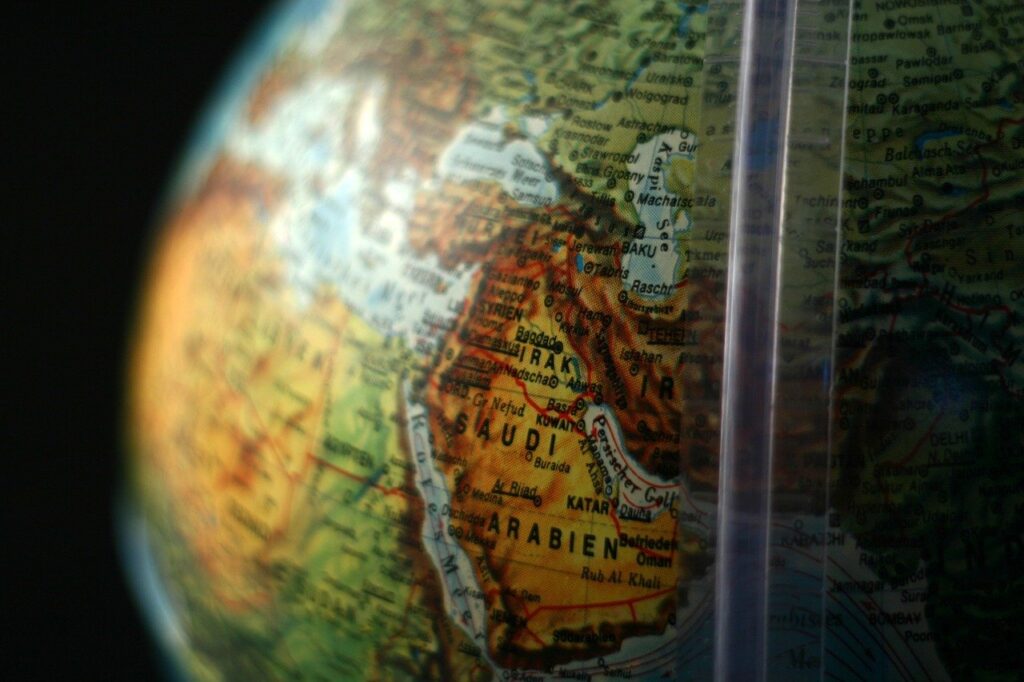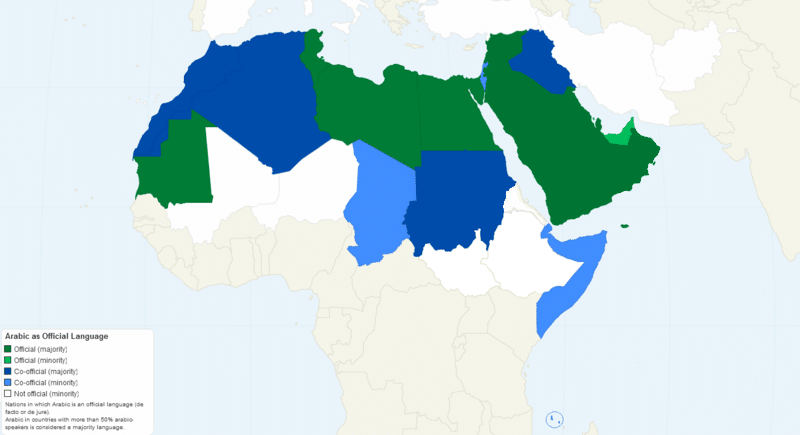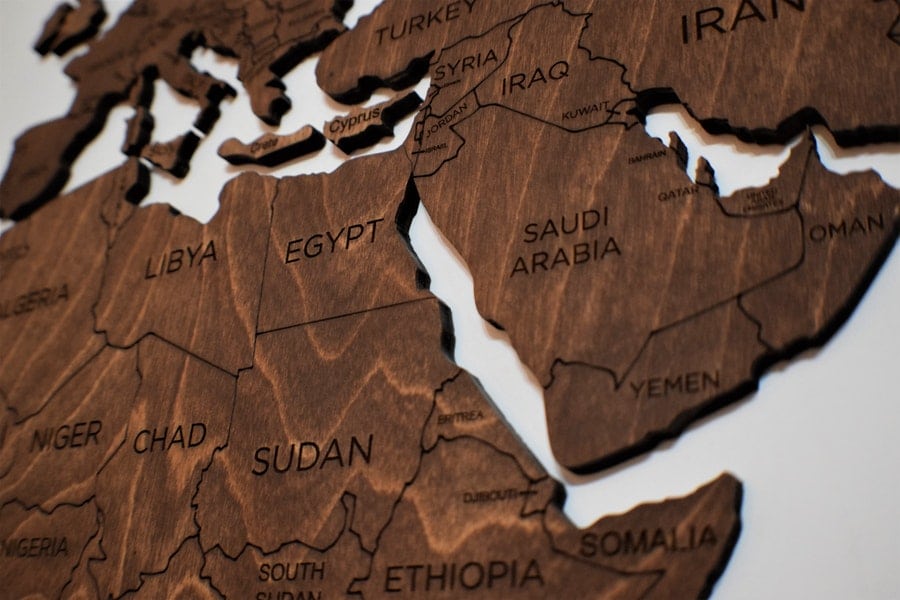Arabic is one of the most fascinating and widely used languages around the globe. One of the important questions I receive in my online Arabic courses and classes is ‘Which countries speak Arabic?’, or ‘Which countries choose Arabic as an official language?.’ I will answer this question and more in this article. So keep reading.
.

.
What you should know about the history of the Arabic language
Arabic is one of the most amazing languages out there. It is a member of the Semitic languages family. This is a vast family that includes other languages like Aramaic, Hebrew, Kurdish, and Amharic. The Semitic family has its own entity and structure that is very different from western languages.
The Arabic language is a very old one, believed to be spoken over 1000 years ago by nomadic tribes in the northern part of the Arabian Peninsula. Today, Arabic is a very widely-spoken language, with over 400 million speakers worldwide.
What? 400 million? Yes, this is a vast number for sure. Arabic is among the top five spoken languages in the world. Learn amazing facts about the Arabic languages in this episode
The spread of the Arabic language
At this point, always remember that spoken Arabic is different from the written one, where many vocabulary and structure differ considerably. I will go deeper into this point in the coming section.
The spread of Arabic was due to many reasons. The most important of which is the Arabs spreading of the Isalm religion and traveling outside the Arabian Peninsula for Trading. The inter-marriage and connection between Arabs and non-Arabs have spread the language further throughout the generations.
Are there varieties of the Arabic language?
Now I want to talk with you about the three main versions of existing Arabic today: Classical Arabic, Modern Standard Arabic, and Colloquial (Spoken) Arabic. Each variant has its own form. Classical Arabic is the form used by Arabic before and during the Islamic era.
This form is remarked by a difficult vocabulary that most of which are no more used today. In the Qur’an, the Holy book for Muslims, there are many words from classical Arabic that the Qur’an learners strive to learn, even if they were native Arabs.
On the other hand, Modern Standard Arabic is the sophisticated form of the language with grammar and structure. It is different from classical Arabic in the sense that modern vocabulary so You will find MSA in almost all written contexts, formal events, and news.
Spoken Arabic can be divided into tens of dialects depending on the country or even the region. For every Arab country, there is a different dialect (and regional sub-dialects). The difference is massive that if a Morrocan speaks with an Iraqi in their native tongues, both will experience difficulty understanding each other.
The good news is that some Arabic dialects are widely understood throughout the Arab region, the most important of which is ‘Egyptian Arabic’. Therefore, you can communicate even if the country speak ‘unusual’ Arabic due to the difference in the dialect.
What is so special about the Egyptian dialect?
Why the Egyptian dialect is the most widely understood language in the Arab world? Well, this is a good question. As a leading country, Egypt has been the center of many sociopolitical events mainly throughout the 20th century. Due to this, Egypt’s news and media powerfully propagated throughout the Arab world.
Throughout the 20th century, many movies, series, cartoons, soap-operas, and songs have been broadcasted to many Arab countries (of course in Egyptian dialect).
Therefore, the generations in almost any Arab country became very familiar with this dialect and can understand most of it. Therefore, learning the Egyptian dialect is considered a gemstone to any Arabic learner focusing on communication. Know more about the fascination of the Egyptian dialect and its power in communication in this article
So, how many countries speak Arabic out there?

There are 23 countries that speak mainly Arabic, or where Arabic is considered an official language. Have a look at the table below for the detailed list.
| Country | Population |
|---|---|
| Algeria | 41,701,000 |
| Bahrain | 1,343,000 |
| Chad | 10,329,208 |
| Comoros | 798,000 |
| Djibouti | 810,179 |
| Egypt | 102,442,939 |
| Iraq | 36,004,552 |
| Jordan | 6,655,000 |
| Kuwait | 2,789,000 |
| Lebanon | 4,965,914 |
| Libya | 6,244,174 |
| Mauritania | 3,359,185 |
| Morocco | 35,250,000 |
| Oman | 4,055,418 |
| Palestine | 4,484,000 |
| Qatar | 2,155,446 |
| Saudi Arabia | 30,770,375 |
| Somalia | 10,428,043 |
| Sudan | 40,235,000 |
| Syria | 20,956,000 |
| Tunisia | 10,982,754 |
| United Arab Emirates | 9,346,129 |
| Yemen | 23,833,000 |
Source: Wikipedia
Now you have a crystal-clear idea of how many countries speak Arabic. Also, you know how powerful it is to speak a dialect that is widely understood throughout the region. My 100% free ‘Egyptian Arabic 101’ is the perfect starting step if you want to build a solid foundation in Egyptian Arabic.
Now tell me, any plans to speak Arabic soon?
